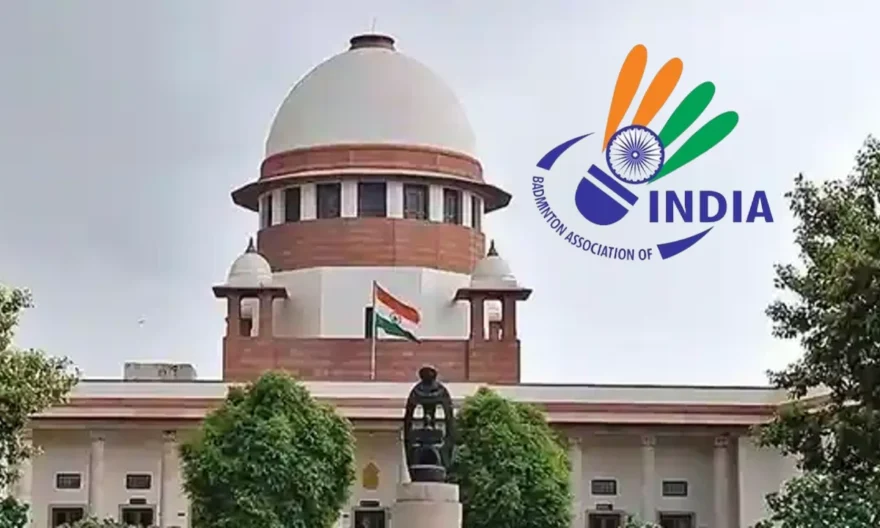
The Supreme Court recently set aside a Karnataka High Court order that had stayed the circulars issued by the Badminton Association of India (BAI).
These circulars had cautioned badminton players, coaches, and technical staff, registered with the BAI, against partaking in ‘unrecognized’ tournaments. Justices Bela M Trivedi and Dipankar Datta, constituting the Bench, highlighted that the High Court’s unilateral order had been issued without affording all concerned parties an opportunity to present their views.
Consequently, the apex court annulled the High Court’s decree and directed it to reevaluate the case after duly hearing all parties involved. Furthermore, the High Court was urged to expedite the matter’s resolution as much as possible.
The Karnataka High Court’s pronouncement, issued last July, had suspended the mentioned circulars. Justice Krishna S Dixit’s ruling restrained the BAI from taking coercive measures based on these circulars, effectively permitting players, coaches, and staff to participate in the upcoming Grand Prix Badminton League.
This High Court ruling ensued from a petition by the organizers of the Grand Prix Badminton League, challenging two circulars circulated by the BAI in April and July. These circulars stipulated that players, coaches, and staff could not engage in tournaments not recognized by the Association without prior approval. Violators of these circulars were subject to action under the BAI’s regulations.
The Grand Prix Badminton League, endorsed by the Karnataka Badminton Association, garnered over 450 registrations for its second season set to commence on August 27. However, due to the impact of the circulars, several players exhibited apprehension about participating.
According to the organizers, they had approached the BAI multiple times seeking clarification on the league’s status but received no response. Given that the league’s initiation was approximately a month away, they approached the High Court, which subsequently suspended the circulars.
Subsequently, the BAI presented its case before the Supreme Court, contesting the High Court’s decision to permit participation in such leagues.




